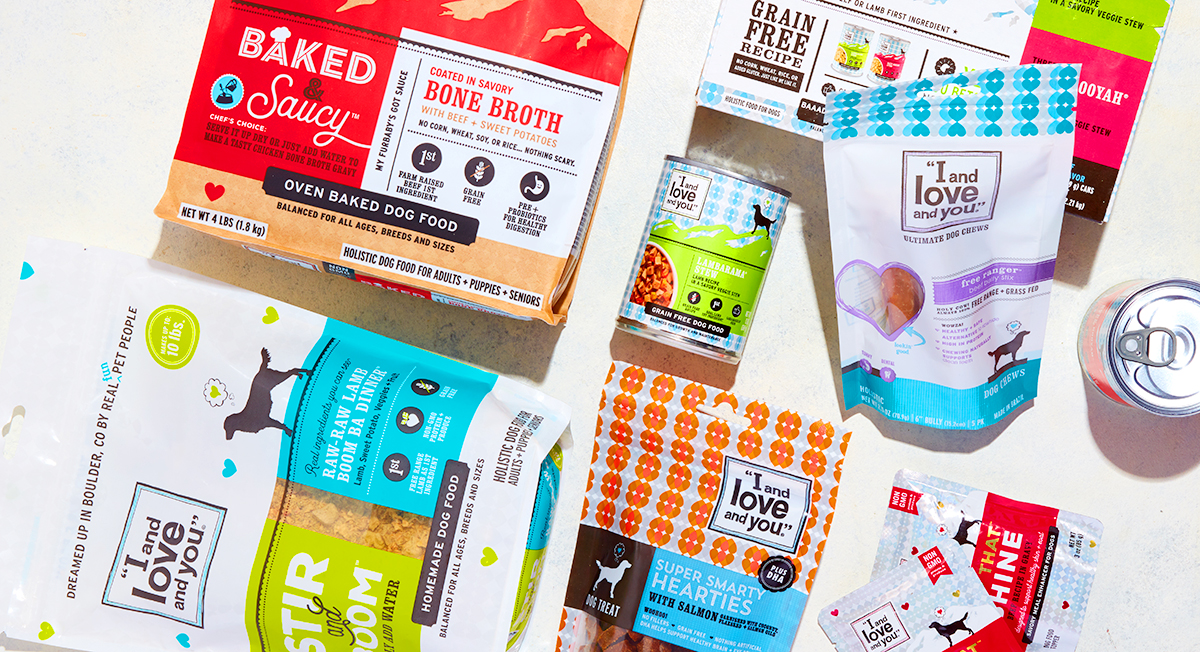How to Improve Your Dog’s Diet, According to a Holistic Vet
Publish Date: August 13, 2019
Last Update: January 27, 2026
We spend a lot of time tweaking our diets and lifestyles to achieve a steady state of feeling good. The same idea holds true for your dog: you could potentially improve its health by adjusting or eliminating certain foods from its diet, resulting in a more at-ease, more able companion. All you have to do to get the best out of man’s best friend? Treat what you put into your dog’s bowl as thoughtfully as what you put on your plate.
For canine nutritional advice, we turned to Dr. Angie Krause, a holistic vet who uses alternative therapies (think: acupuncture and CBD) alongside traditional Western medicine to care for her four-legged patients. Her dog diet guidelines are pretty simple. “Stick to whole-ingredient, high-quality, low-processed food as much as possible,” she says. “These types of foods are great for the gut. When you optimize your pet’s diet to create a healthy gut, that’s when you start to see whole-body effects and even shifts in your pet’s mood.”
Here are three holistic vet-approved ways to make healthy updates to your dog’s diet—plus pet food recommendations from our partner, all-natural pet food brand I and love and you, so you know exactly what to feed your dog.

1. Go Wheat-Free
According to Dr. Krause, a wheat-free diet is an easy way to improve your dog’s diet: without wheat, there’s more room for good-for-the-gut ingredients in each bite (and yes, that does include rice and ancient grains, which aren’t harmful to most dogs). It might also mean you’re steering your pet clear from a few common ailments. “If your dog is sensitive to wheat, it can be more susceptible to ear infections, inflammation, and itchy skin,” she says.
Healthy Dog-Food Update: Wheat-Free Kibble
The first ingredient on all of the brand’s kibble labels is real meat. Vitamin-rich foods like lentils, garbanzo beans, and sweet potato make the palettes hearty, and round out the no-filler recipes.
- Get on their gut’s good side with kibble featuring Prebiotics and Probiotics added to restaurant-worthy combinations like chicken and duck and lamb and bison.
- High-protein option comes in a mix of pork and lamb and turkey with turkey meal and chicken meal.
2. Stick to Limited Ingredients
The fewer ingredients you feed your pet, the easier it will be for you to figure out their sensitivities, says Dr. Krause, especially when that food also contains zero wheat, soy, corn or other fillers. “The best-case scenario is you’re making pork and potatoes or beef and sweet potatoes at home in a crock pot so they can cook in their own fats and juices, maybe as an extra serving with your family’s dinner to save time and effort.” If that sounds more like a dream-case scenario, look for ready-made options that are as lovingly prepared.
Healthy Dog-Food Update: Baked Kibble
Made of farm-raised meat, this kibble is oven baked in small batches and coats in a savory bone broth. If you want to make every day feel like Thanksgiving, add a splash of water to turn that savory coating into a rich gravy.
- There are a few more ingredients in this food—peas, flax seeds, and fish oil to name a few. But they’re all there for a reason: to provide optimal vitamins, minerals, and nutrients to your pet without disturbing its digestion.
- Choose your favorite protein, chicken or beef, both paired with high-fiber sweet potatoes.
3. Go Raw
It might be intimidating to owners, but this is as natural a diet—and easy to digest—as it can get for a dog. “Raw foods go through the system much slower,” says Dr. Krause. “This pace allows certain bacteria to flourish in the gut, and that allows the gut to absorb food better.” Dr. Krause doesn’t recommend pulling meat from the grocery shelves—they might have been sitting out too long to be safe as-is. Instead, she suggests turning to trusted pet food brands to ensure safe handling.
Healthy Dog-Food Update: Dehydrated Raw Food
Save fridge and freezer space with this dehydrated food formula of ingredients that were never cooked or processed, mimicking what coyotes, wolves, and other distant relatives would have hunted, foraged, and eaten on their own in the wild.
- Four kinds of meat—beef, turkey, chicken, and lamb—offer the opportunity for your dog to pick a favorite.